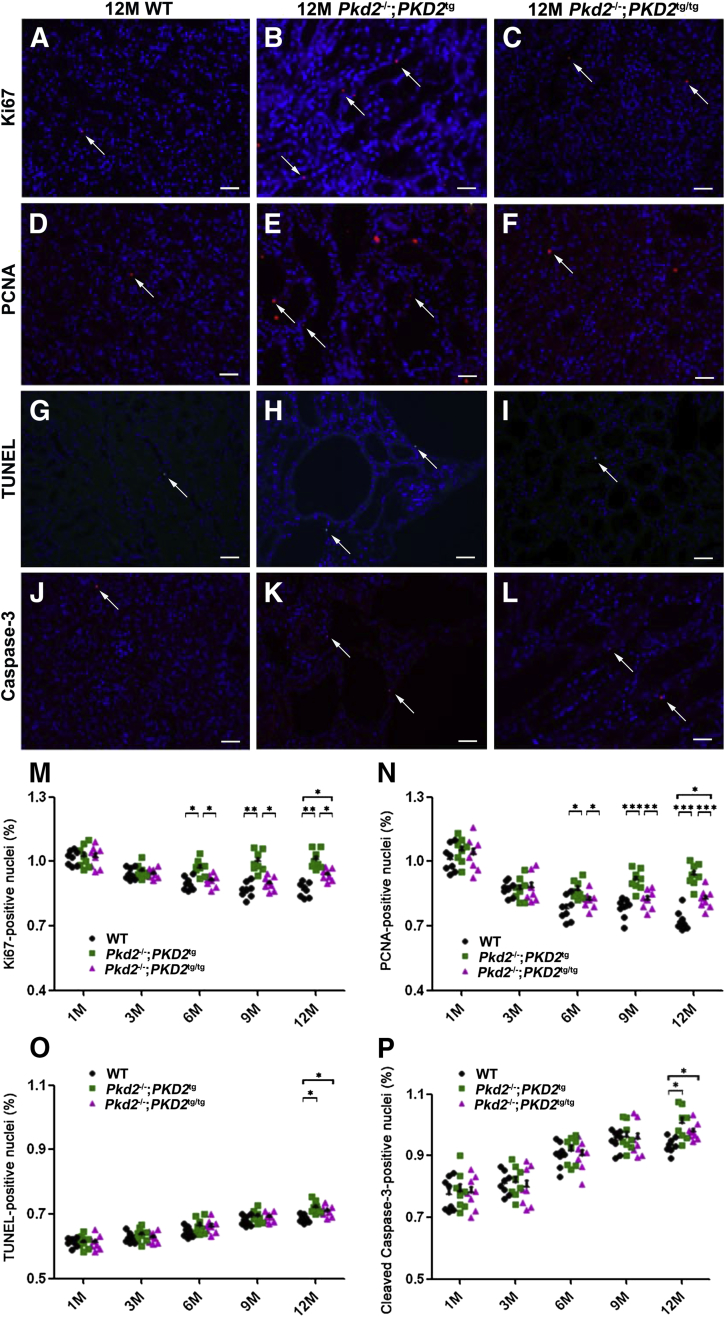Figure 8.
Allelically increased PC2 expression prevents excessive cell proliferation in the cystic kidneys of Pkd2-deficient mice. A–L: Proliferation and apoptosis status of 12-month-old wild-type (WT), Pkd2−/−;PKD2tg, and Pkd2−/−;PKD2tg/tg mice were analyzed by immunofluorescence staining. Proliferation markers Ki-67 and proliferating cell nuclear antigen (PCNA) (arrows in A–F) re detected to assess the proliferation rate in the kidneys of wild-type, Pkd2−/−;PKD2tg, and Pkd2−/−;PKD2tg/tg mice. Apoptosis was assessed by terminal deoxynucleotidyl transferase dUTP nick end labeling (TUNEL) and anti–cleaved caspase-3 antibody (arrows) staining in the same mice (G–L). M and N: Significantly elevated proliferation rates are found between the kidneys of wild-type and Pkd2−/−;PKD2tg mice starting at the age of 6 months, and these increased rates are significantly suppressed by allelically increasing the number of PKD2 transgenes (n = 8 per genotype). O and P: The same kidneys were analyzed for apoptosis markers. Significantly different apoptosis is detected only between the kidneys of 12-month-old wild-type and Pkd2−/−;PKD2tg or Pkd2−/−;PKD2tg/tg mice. ∗P < 0.05, ∗∗P < 0.01, and ∗∗∗P < 0.001. Scale bar = 60 μm (A–L). M, months.

